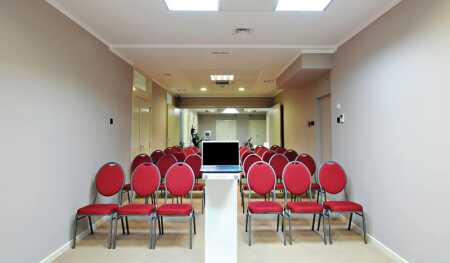The traditional classroom-based model of higher education has been under attack for being overly expensive and deficient in providing students with employable knowledge and skills. Advanced degrees in business also have been scrutinized for the opportunity cost of being away from the workforce, questions concerning the relative usefulness of the education, and, of course, the expense.
These issues are amplified in the case of real estate education given the highly applied nature of the discipline and the difficulty of developing an industry-quality understanding of the work within the confines of a classroom. The culpability of real estate educators and programs for these issues is debatable, but the rapidly changing real estate market—and employer demands—necessitate a constant reevaluation of the manner in which students are being prepared for their careers.
An industry criticism of newly minted real estate professionals is that while they may be long on the theoretical understanding of real estate investment and valuation, a disconnect exists between the knowledge acquired in structured classroom settings and what is necessary to be immediately successful in the workplace. A deeper understanding of the nuances of individual property types and real estate products that comes from real-world experience can be lacking, along with a top-down perspective of the implications of the macroeconomy on individual investments. While most real estate programs expose students to tools such as Argus and Excel financial modeling, the depth of the experience is often superficial, confined to a multiday training session by a third-party provider.
Related: Learn more about ULI’s Education offerings | ULI Real Estate School | Entrepreneur Programs
Of greatest importance, today’s employers are trying to ascertain whether students possess reasonable deal judgment that would allow them to quickly evaluate the strengths and weaknesses of a prospective transaction. Increasing the complexity of the investment strategy to include value-add or opportunistic investments only magnifies these challenges. Internships are often promoted as the method by which students bridge the gap between classroom learning and private sector experience, and while internships are helpful, their duration is short and the quality of experience can vary drastically. While students are not entirely unprepared, an opportunity exists to close the gap between the skills and knowledge that students have and what they need to be immediately successful on the job.
This gap is attributable to insufficient exposure to real-world complexities that are not as easily addressed within classroom lectures or case studies due to the simplification of complexities for discussion purposes. These cases are excellent for teaching a handful of conceptual topics and are critical to establishing a baseline understanding, but they often lack the complicating factors that are inherent in most real estate transactions and rarely involve the source documents to which a student would be exposed in the real world.
Answering the question of how to address these challenges requires consideration of the education of other industry professionals. A search of some of the most prestigious U.S. law school programs will quickly produce prominent links to law clinics and other experientially based aspects of their programs. The training of health care professionals at elite medical schools relies heavily on clinics and practicums to allow aspiring doctors and nurses to develop an understanding of the real-life diagnosis and care of human beings under the supervision of experts. The proliferation of entrepreneurship programs and subsequent incubators allows students to test new business concepts with oversight from successful serial entrepreneurs.
The development of a similar clinic concept in real estate education is a natural extension of a program’s curriculum and could meaningfully enhance the understanding and usefulness of graduates. To be fair, numerous real estate programs have some form of experiential learning or applied experience, but this experience is often highly contained and can involve work that is of middling value to the participating firm. The next generation of real estate education demands that the classroom experience be intertwined with industry to a level not previously experienced so that students can engage in meaningful work throughout their academic careers.
This is not to devalue the classroom component nor suggest that programs should focus entirely on industry-level experience. Instead, the goal is to interject the complexities of authentic real estate problems into elite real estate programs—bringing to bear the best elements of the classroom and applied experiences to create a better-prepared student.
The principal function of a real estate clinic would be to assist firms with their core business. For example, the clinic could develop an arrangement with a firm in which students are used in the analytical support of new private equity acquisitions. A broker’s offering memorandum along with the associated Argus file would be sent to the clinic for an asset the firm is interested in pursuing. The student would incorporate the firm’s projected rent growth; speak to leasing brokers about market rental rates and lease-up timing of vacant suites; underwrite anticipated changes to property taxes following sale; and use simple age/life metrics to determine when capital should be spent. All of this work would be incorporated into the Argus model and potentially transferred to the firm’s proprietary Excel model, where the asset could be formally priced. An underwriting summary would be developed that would outline how the student underwrote revenue, operating expenses, and capital along with a list of questions developed from reading the broker offering memorandum to be further investigated by the firm. These files would be delivered to the firm so that its team could quickly evaluate what was done, make changes as needed, and develop an independent decision as to whether the deal should be pursued and, if so, at what price. In this example, the clinic would provide a valuable service to the company as it performs the preliminary analysis. Not only would this save time, but it would also allow the firm to consider more deals.
The structure of a real estate clinic would be highly variable depending on circumstances and relationships, but the following are critical elements:
- High-quality work: Faculty, administration, and students need to develop a mind-set that the work produced within the clinic would be of professional quality. Errors will occur, but the production of consistently good work is necessary for the longevity of the clinic.
- Continuous support: Deliverables cannot be dependent on or affected by the academic calendar. The best execution of a clinic is incorporation of the clinic in the firm’s business. The dependability of the clinic resource is critical to establishing trust with the firm.
- Select firms: Relationships with select firms must be created and exercised to allow for a steady flow of work through the clinic. The focus on professional-grade work and teaching requires that the number of participating firms be kept small.
- Professional oversight: Professional oversight of the students and their work is fundamental. Consistent with the instruction of lawyers and health care professionals, the clinic needs to be staffed by highly capable individuals who can take the form of executives-in-residence, or similar titles, who educate and ensure quality of product.
- Academic credit: Students should earn academic credit for these experiences similar to their brethren in the law and health care professions.
- Program compensation: If done properly, schools can charge firms meaningful dollars for performing this work. This cash flow can be used to compensate the expert oversight and to fund scholarships.
- Absolute confidentiality: Students and participating faculty must sign confidentiality agreements ensuring that sensitive information is not disseminated.
The benefits of such a clinic for real estate students would be immense: they would get live-transaction experience in their academic program that would expand their understanding of individual property types, geographic regions, financial modeling, and deal judgment, and possibly even generate financial assistance in the form of scholarships. From there, students could take these experiences into interviews and discuss real work that they have accomplished to demonstrate an understanding that could distinguish them in the competition for jobs. Ultimately, this experience should make the student more proficient on the job, which is the responsibility of the academic institution.
In addition to students benefiting from the clinic, participating firms would gain meaningful assistance in the processing of deals through a third-party resource that can accommodate fluctuations in deal flow, assist in the education of a new generation of real estate professionals, and have the opportunity to evaluate talent much earlier in the process than companies that do not participate.
The development of a clinic concept within a real estate program would take dedication and support from faculty, administration, students, and the industry at large as the concept is not without its challenges. But in an environment in which higher education is criticized for costing too much and providing too little, this format would equip students with the skills, understanding, and scholarship dollars necessary to allow them to succeed.
Matthew Cypher, director of the Real Estate Finance Initiative at Georgetown University’s McDonough School of Business, is a professor of the practice of real estate finance.


